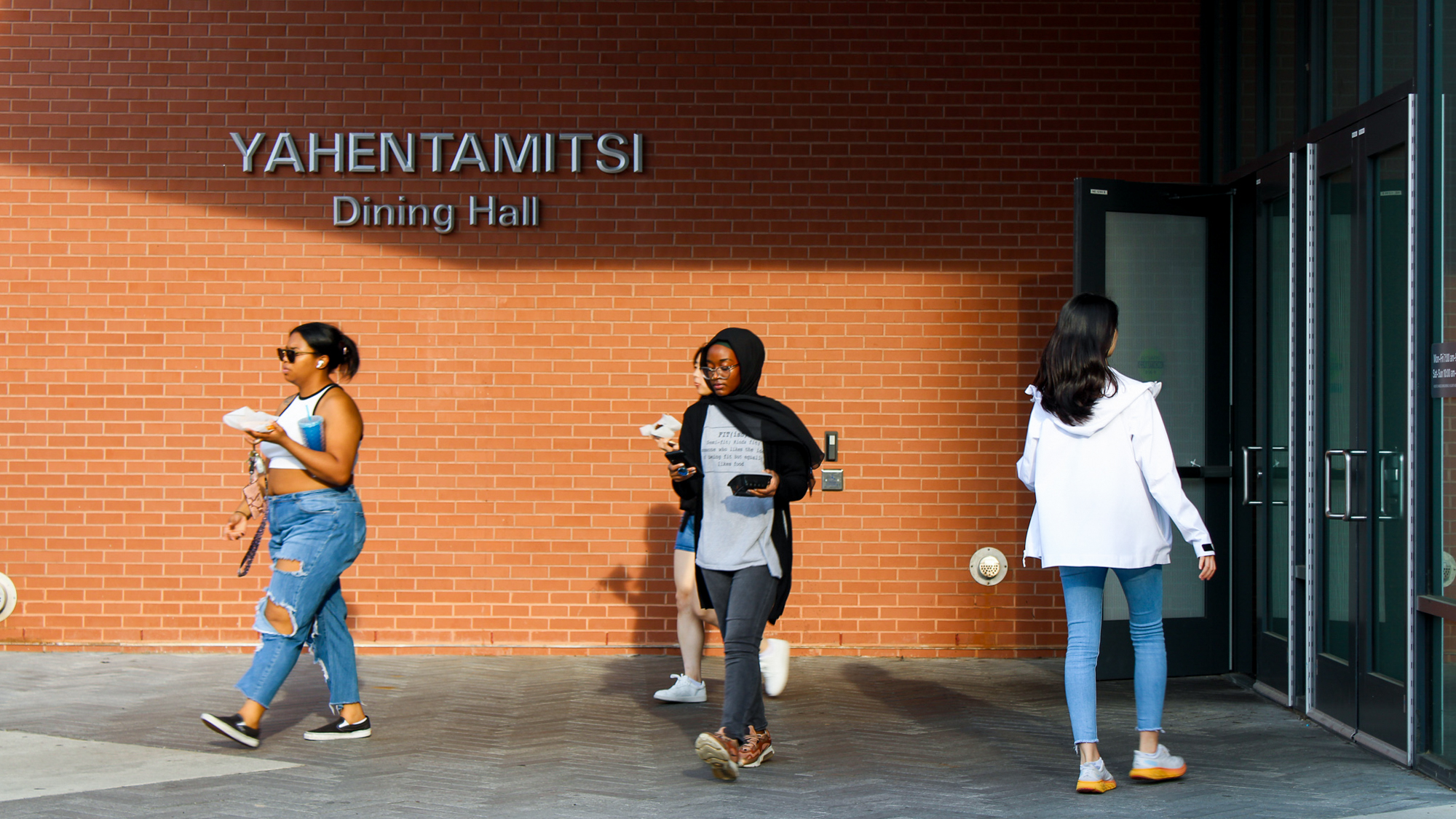As Ramadan reached its midpoint Thursday, Muslim students at the University of Maryland are continuing to balance their faith and college workload during one of the holiest months in the Islamic calendar.
During Ramadan, Muslims fast from dawn until sunset, emphasize reading the Holy Quran and focus on building better habits for the rest of the year.
Since the month falls in the middle of the spring semester this year, students have to balance fasting, exams, extracurricular activities and a social life. Here is The Diamondback’s guide to finding available resources on and around the campus for students observing Ramadan.
Suhoor
Suhoor is the Arabic word for the meal Muslims have before their fast starts at sunrise. Typically, people try to eat healthy and filling foods in order to sustain themselves until it’s time to break their fast.
This university’s Dining Services offers a carryout suhoor meal for students with dining plans.
A student must fill out a meal form on the Dining Services website by 9 p.m. on Thursday nights to reserve meals for the following week. Then, the student can pick up those meals each evening at Yahentamitsi or South Campus Dining Hall.
Many students said the amount of food provided in these meals is plentiful and filling.
Freshman computer science major Musa Waseem is currently spending his first Ramadan on campus. One of his biggest worries before the month started was figuring out what he would eat before sunrise.
“I was pleasantly surprised that the university provides not only something, but it’s a lot of food, and it’s pretty good as well,” Waseem said.
[UMD GRAD Day features interdisciplinary student research]
Aasiya Ali, a freshman finance and information systems major, has seen a breakfast sandwich or wrap, yogurt, dates, cookies, fruit, oatmeal and a bagel or muffin in suhoors. All of the meat included in the meals is zabiha, or halal, according to Dining Services.
If a student isn’t able to sign up for suhoor meals in time and finds themself without any available groceries and has the energy to go out before 6 a.m., they can also venture off campus. Both the McDonald’s and Denny’s on Route 1 are open 24 hours a day.
Iftar
Iftar is the meal Muslims eat after the sun has set and it’s time to break their fast.
Both Yahentamitsi and South Campus Dining halls will be open after sunset for the entirety of Ramadan for students with meal plans.
There are also a plethora of free iftars offered at Stamp Student Union. During the first week of Ramadan, Stamp hosted three days of free iftars.
The next Stamp iftar will be on Friday in the Grand Ballroom Lounge at 7 p.m..
The Muslim Student Association has also sponsored several meals, including some in Stamp.
If students tire from the options on campus, they can also break their fast at a restaurant nearby. A few halal restaurants in and around College Park include, but are not limited to: Pizza Kingdom, which has any and all pizza toppings a person desires; Elevation Burger, which has organic burgers with fries and shakes; and Pizza Roma, which is popular for its sub sandwiches.
[UMPD program saved drivers more than $3,000 in 2023]
Taraweeh
Taraweeh is a voluntary nightly prayer performed during Ramadan. Most mosques hold congregational prayers every night of the month for people to pray together.
The university’s Muslim Student Association holds the nightly prayer every night of Ramadan in the Musallah, the Muslim prayer space in Cole Field House. Next week, the prayers will start at 9:20 p.m.
Waseem sometimes leads students in these prayers at the Musallah. The experience is valuable and comforting, he said.
“You’re leading people that you study with,” he said. “You’re forming bonds essentially with these people that, at least for me, I’ve only recently met.”
Having these prayers on campus is especially important because they are accessible for those students who don’t have transportation, Ali added.
There are also several mosques near campus that hold taraweeh prayers daily. Among them are Dar-us-Salaam, a mosque just off of Route 1 near this university and the Diyanet Center of America, a large mosque about 20 minutes away.
Concerns
While many Muslim students have found resources for food and prayer to be adequate, they don’t feel as supported academically. Several students have said their professors have not acknowledged Ramadan, even though they’ve addressed other religious holidays.
For freshman psychology major Yusra Yousuf, this has been the norm for her entire education, even before college.
“That’s always been something that has been present in my life,” Yousuf said. “My teachers are not recognizing Ramadan and saying that they’re here to support their Muslim students.”
It would be comforting if professors made these types of announcements, so students could know if they are willing to be more accommodating, Waseem added.
Likewise, Ali has felt overwhelmed when considering requests for extensions, which has resulted in her staying up later or missing taraweeh to finish her work.
“I feel like maybe [the university] could reassure Muslim students that it’s okay during Ramadan to approach their professors about extensions or just getting a little extra help during the class, or the professors themselves could make an announcement,” Ali said.



